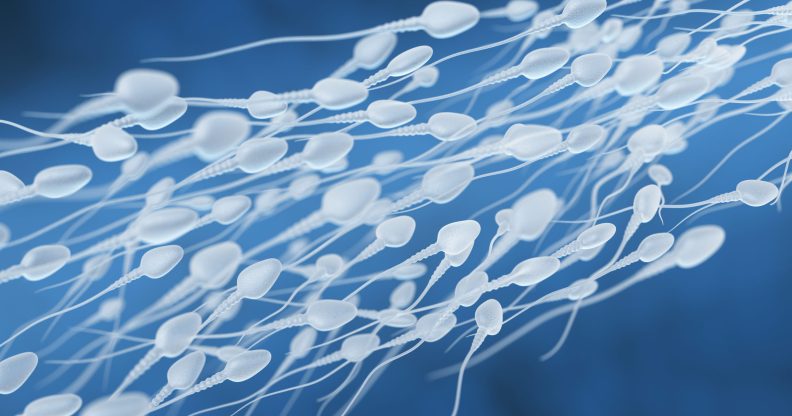Mum whose trans daughter died suddenly aged 16 asks court to save her sperm so she can have a grandchild

A mother is fighting for the right to create embryos from her late trans daughter’s sperm. (Envato)
A mother mourning the tragic loss of her 16-year-old trans daughter is fighting to save sperm she had frozen before beginning hormone therapy.
Ellie Anderson died suddenly in July aged 16. Now, her mother Louise is launching a legal bid to stop her sperm from being destroyed so that she can create a grandchild.
“Ellie’s biggest desire was to be a mother,” Louise said, according to the Daily Record.
“She had made me promise that if anything were to happen to her, her children would be brought into the world.”
The 45-year-old, from Stirling, Scotland wants to honour her daughter’s wishes by using her DNA with a donor egg and surrogate.
Ellie began expressing her trans identity aged three, and delayed hormonal treatment so that she could have her sperm collected for future use. She planned to undergo gender-affirming surgery at 18.
Under UK law, had she been in a relationship at the time of her death, her partner would have the right to ask for her sperm to be saved.
There is no such arrangement for that right to be transferred to the deceased’s parents, however Louise is asking judges in Scotland’s highest civil court to make a test case ruling that could set a legal precedent.
Soon, the court will be asked to give an interim interdict preventing the Glasgow Royal Infirmary Fertility Clinic from destroying Ellie’s sperm, before making a final ruling.
“I am going to do every I can to honour her wishes – not just for her but for anyone else caught in this position,” Louise added.
The Human Fertilisation and Embryology Authority advises that although some trans people who undergo hormone therapy will have their fertility restored if they stop the treatment, there are no guarantees.
Moreover, the longer a person is having hormone therapy, the more their fertility is likely to be permanently affected. Bottom surgery will also impact a person’s fertility.
For this reason, it advises that trans people may want to have their sperm, eggs or embryos frozen before treatment, for use in IVF or similar treatment.

